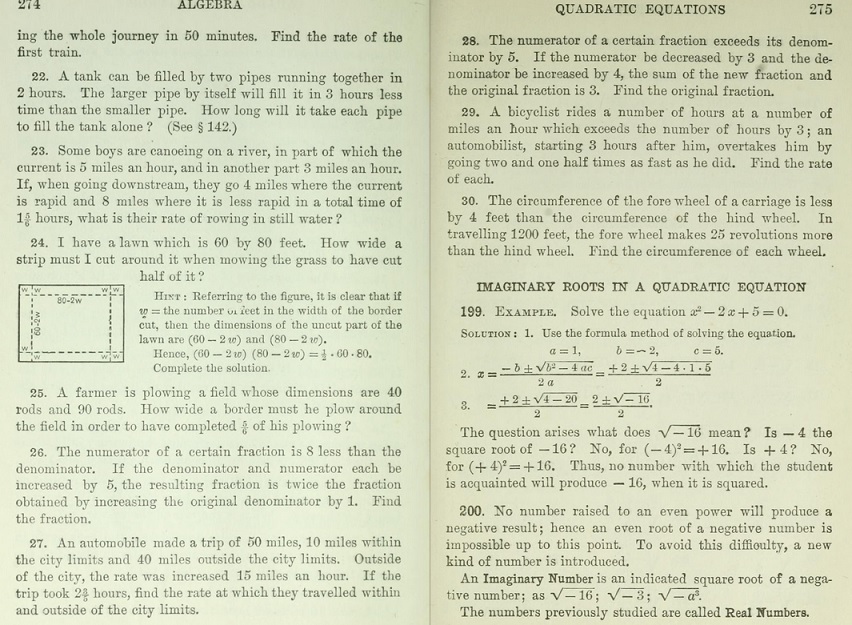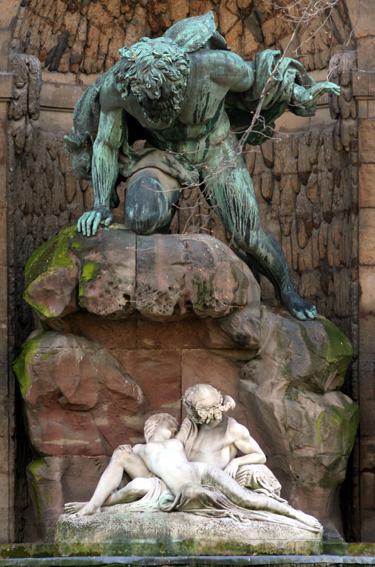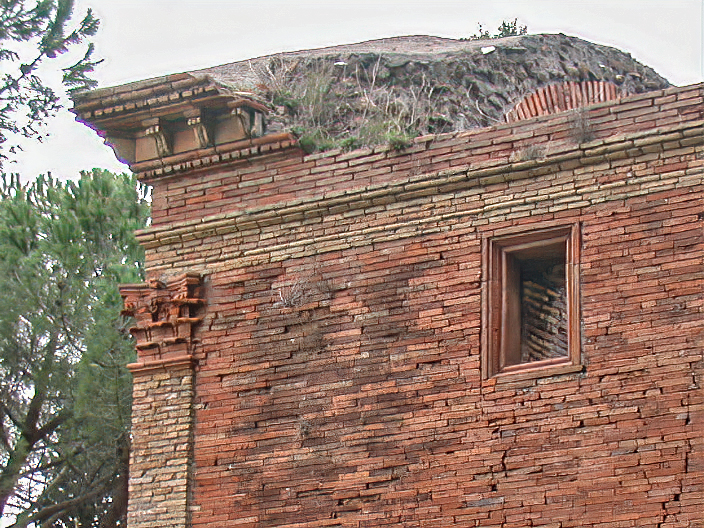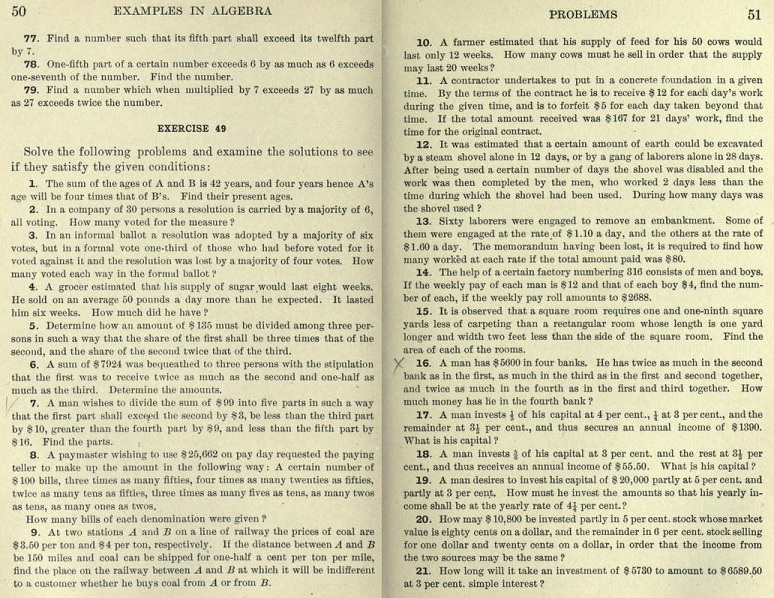

Is algebra boring because of its content, or is it just the style? William W. Rankin, who taught at a succession of Southern US colleges and eventually became Professor of Mathematics at Duke, had rather extreme views on the subject. The North Carolina Council of Teachers of Mathematics now gives a yearly award in Rankin's memory to the person deemed to have done the most to promote mathematics education in the state.
THE ORIGIN OF SOME PROBLEMS IN ALGEBRA, by W. W. Rankin, Agnes Scott College, Georgia [ The High School Journal 4, 158 (1921)]. Rankin's words are in bold
Not long after he begins to study algebra he will likely meet with the "tank" problems, the "labor" problems and many other puzzle problems. He finds these problems carefully phrased in the language of practical mathematics. However, a study of the original problems and the fanciful way in which they were stated will reveal the fact that they were originally intended mostly for puzzles. The present-day student of algebra would doubtless work as industriously over the so-called practical problems if he were told they were puzzle problems that his predecessors had worked on for the past 1600 years.
The problems given below are selected from a collection made by Metrodorus about 310 A. D. found in The Greek Anthology. It is not known how much farther back they date. It will not be difficult for the reader to trace many of the problems found in the present-day algebras back to their original source. He may judge for himself as to whether the modern text-book writer has improved the problems by leaving off the little fanciful touches of rhetoric, found in the original.
The original problems were solved by rhetorical algebra as our symbols, +, -, ×, ÷, etc., were introduced many centuries later, about 1540.
[Rankin took his prose translations of the verses below from Volume V (Book XIV) of W. R. Paton's The Greek Anthology, (London: Heinemann, 1918), in which the original Greek texts may also be found. The Greek Anthology, for readers unfamiliar with it, is a vast collection of Greek poetry from pre-Classical times through the Middle Ages, the era when "Byzantine" (East Roman) scholars compiled it.]

We three Loves stand here pouring out water for the bath, sending streams into the fair-flowing tank. I on the right, from my long-winged feet, fill it in the sixth part of a day; I on the left, from my jar, fill it in four hours ; and I in the middle, from my bows in just half a day. Tell me in what a short time we should fill it, pouring water from wings, bows, and jar all at once. (Answer: 1/11 of a day.)

This is Polyphemus, the brazen Cyclops, and as if on him someone made an eye, a mouth, and a hand, connecting them with pipes. He looks quite as if he were dripping water and seems also to be spouting it from his mouth. None of the spouts are irregular; that from his hand when running will fill the cistern in three days only, that from his eye in one day, and his mouth in two-fifths of a day. Who will tell me the time it takes when all three are running? (Answer: 6/23 of a day.)

Brick-maker, I am in a great hurry to erect this house! To-day is cloudless and I do not require many more bricks, for I have all I want but three hundred. Thou alone in one day couldst make as many, but thy son left off working when he had finished two hundred, and thy son-in-law when he had made two hundred and fifty. Working all together, in how many days can you make these? (Answer: 2/5 of a day.)

Diodorus, great glory of dial-makers, tell me the hour since when the golden wheels of the sun leapt up from the east to the pole! Four times three-fifths of the distance he has traversed remain until he sinks to the western sea. (Answer 3 and 9/17 had passed, and 8 and 8/17 remained.)
Cypris thus addressed Love, who was looking downcast: "How, my child, hath sorrow fallen on thee?"
And he answered : "The Muses stole and divided among themselves, in different proportions, the apples I was bringing from Helicon, snatching them from my bosom! Clio got the fifth part, Euterpe the twelfth, but divine Thalia the eighth. Melpomene carried off the twentieth part, and Terpsichore the fourth, and Erato the seventh; Polyhymnia robbed me of thirty apples, and Urania of a hundred and twenty, and Calliope went off with a load of three hundred apples. So I came to thee with lighter hands, bringing these fifty apples that the goddesses left me."
(Answer: Love had 3,360 apples.)

Make me a crown weighing sixty minæ, mixing gold and brass, and with them tin and much-wrought iron. Let the gold and the bronze together form two-thirds, the gold and the tin together three-fourths, and the gold and iron three-fifths. Tell me how much gold you must put in, how much brass, how much tin, and how much iron, so as to make the whole crown weigh sixty minæ. (Answer: Gold 30½, brass 9½, tin 14½, iron 5½.)

Arise, work-women, it is past dawn! A fifth part of three-eighths of what remains is gone by. (Answer: 36/45 of an hour had gone by.)
Alpha gives me ten minæ and I become three times as much as you, Beta. If I get the same from you, I am five times as much as you. (Answer: Alpha = 15 and 5/7; Beta = 18 and 4/7.)
